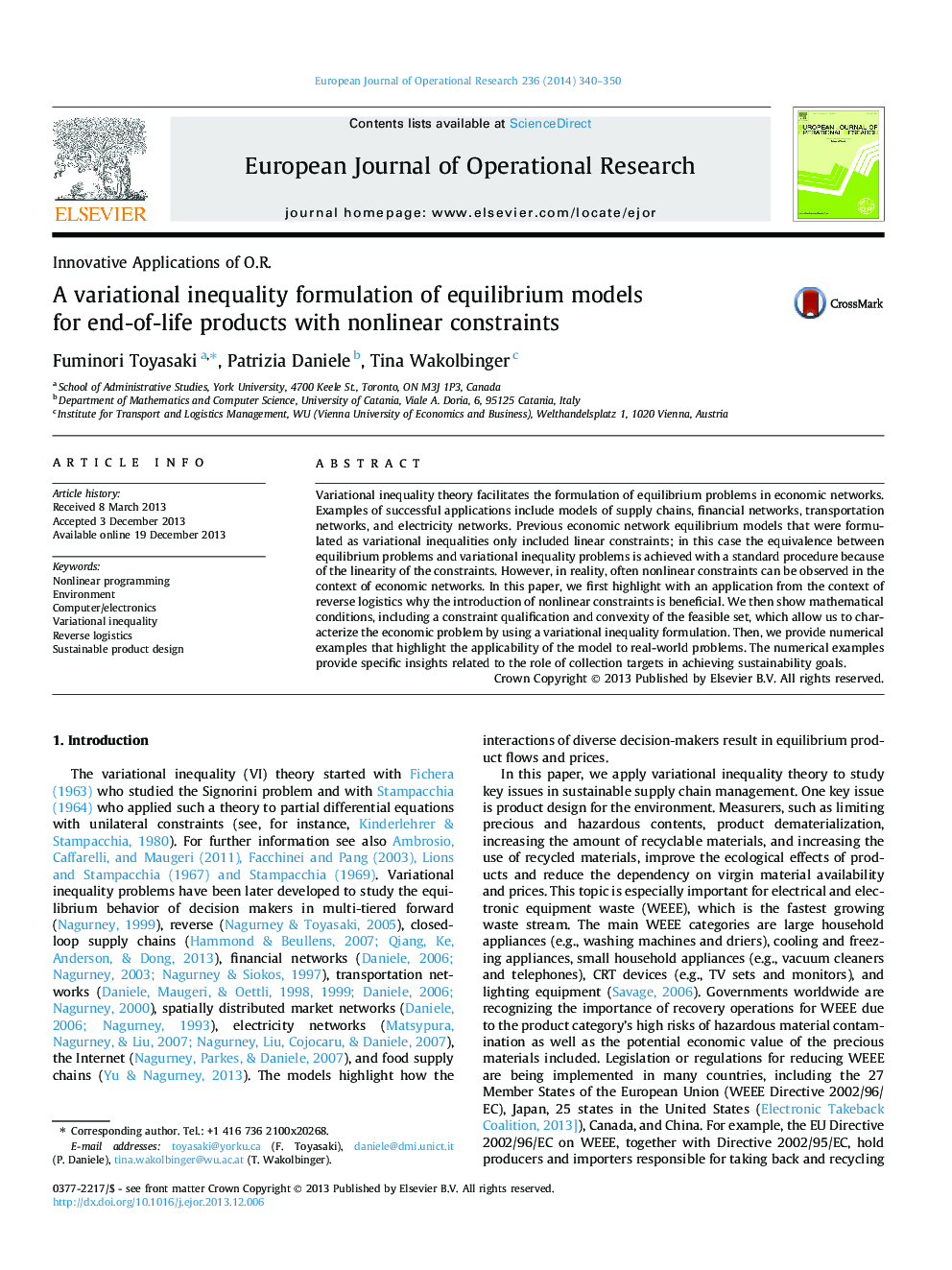| Article ID | Journal | Published Year | Pages | File Type |
|---|---|---|---|---|
| 6897557 | European Journal of Operational Research | 2014 | 11 Pages |
Abstract
Variational inequality theory facilitates the formulation of equilibrium problems in economic networks. Examples of successful applications include models of supply chains, financial networks, transportation networks, and electricity networks. Previous economic network equilibrium models that were formulated as variational inequalities only included linear constraints; in this case the equivalence between equilibrium problems and variational inequality problems is achieved with a standard procedure because of the linearity of the constraints. However, in reality, often nonlinear constraints can be observed in the context of economic networks. In this paper, we first highlight with an application from the context of reverse logistics why the introduction of nonlinear constraints is beneficial. We then show mathematical conditions, including a constraint qualification and convexity of the feasible set, which allow us to characterize the economic problem by using a variational inequality formulation. Then, we provide numerical examples that highlight the applicability of the model to real-world problems. The numerical examples provide specific insights related to the role of collection targets in achieving sustainability goals.
Keywords
Related Topics
Physical Sciences and Engineering
Computer Science
Computer Science (General)
Authors
Fuminori Toyasaki, Patrizia Daniele, Tina Wakolbinger,
